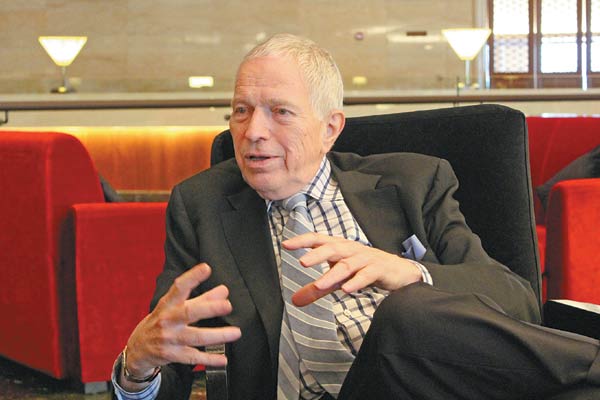 |
|
Edmund Phelps says a lot of reporting on economic and financial issues distorts the real picture. WANG ZHUANGFEI/CHINA DAILY |
Edmund Phelps firmly believes China needs to innovate more if its economy is to progress to the next stage of development.
The Nobel Prize-winning economist says if it sticks with an infrastructure investment-fueled economic model it risks being stuck in the middle-income trap, the fate of so many developing nations.
"I strongly believe that to enter the next phase of its development, it will have to embrace a radical increase in indigenous innovation.

|

|
He makes about four trips a year with his wife Viviana, who also acts as his personal assistant.
"I don't have much to do with the operations. I make speeches to students. If there is a fee I haven't seen it," he says.
"I was the commencement speaker earlier this month for the graduating students of the business school. In the early evening the students - many of them expert song and dance performers - put on a show. It was amazing. This is the flamboyant exuberance about China I like very much."
Such exuberance he does not see much of in either Europe or the United States in his new book Mass Flourishing, in which he argues that despite Silicon Valley and the likes of Google and Facebook, we are not living in an innovative age.
Progress today, according to Phelps, pales into comparison to what happened during the British Industrial Revolution or in the United States from the mid-19th century to around 1940.
He uses as his measure of innovation the growth of productivity, which he says is now at a standstill in countries like Germany, which many otherwise see as economically successful.
"Germany exhibits a slowdown, verging on a full stop in productivity. How many German companies can you think of that you would call creative? I have heard it said about Siemens that the management understands technological change but don't understand about creating new products.
